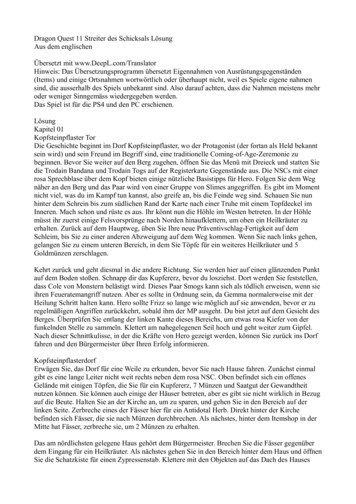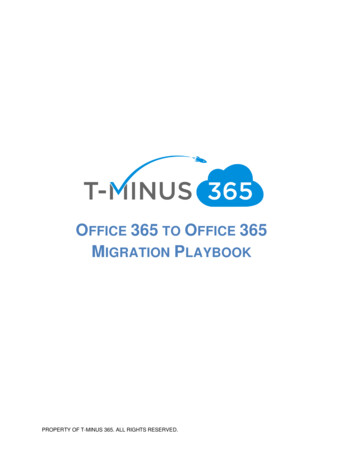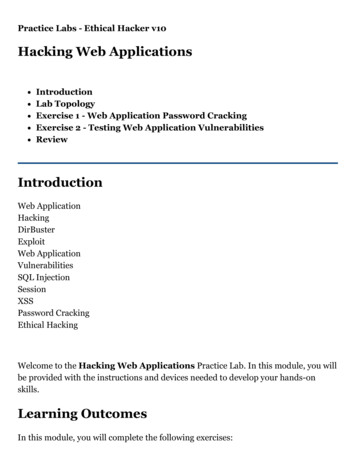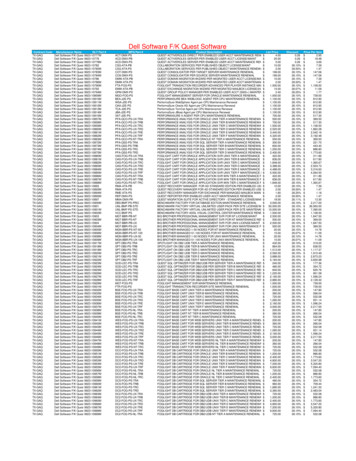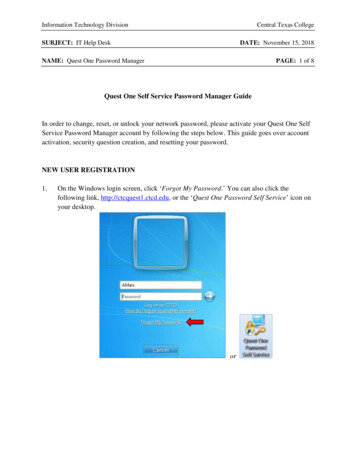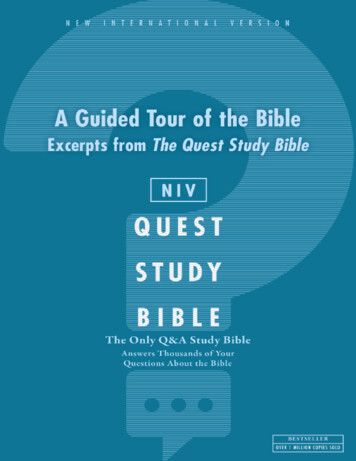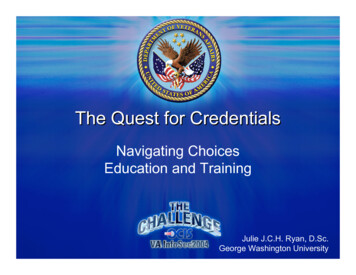
Transcription
The Quest for CredentialsNavigating ChoicesEducation and TrainingJulie J.C.H. Ryan, D.Sc.George Washington University
The First Question What’s an “IA Professional”?– The IA field is very complex– Analogous to “medical professional” Whole range of doctors– Pathologists to pediatricians to brain surgeons Whole range of nurses– LPNs, RNs, Nurse-anesthetists, etc Whole range of other specialities– Pharmacists, lab technicians, etc Medical administrators– From insurance claims processors to hospital managers Bottom line:– “IA Professional” is a lot of different people
Given That . To build an IA Workforce, address each area Opportunities for education– Technical education From electrons to data structures– Practical training From configuring firewalls to patch management– Legal education From law enforcement to intellectual property law– Engineering education From systems engineering to security architectures– Management education From policy development to resource allocation
A complete IA workforce needsall those elementsAnd they all need to work together
Challenges Not all employers recognize the needs Employees are handicapped– By previous education– By effects of the go-go 90s– By perceptions about what an IA professional is Educational institutions are biased– By lack of understanding/knowledge– By perception that “anyone can teach security”
Types of Opportunities Training Programs– Learning how to do a task Certifications– Recognition that certain criteria have been met Test, years of experience, etc Formal Educational Programs– Learning how to think about a problem
Expectations You as the consumer– Of the product or service What do you need to accomplish? What ancillary benefits come with success?– Of the end result Hiring differentiation Expectation of capability/knowledge
Certifications Mudge’s opinion of certifications– “Remember when the MCSE came out? Thatwas your first clue that someone didn’t knowwhat they were doing.” Statement made at West Point 10 June 2004 byPieter Zatka, aka Mudge Harsh or accurate assessment?– Maybe a little of both– How do you really know?
CertificationsSome of the certifications offered ISC(2)SCPCompTIA SANS GIACCISSPSCNPA ISSAPSCNACDIA ISSMPCTT ISSEPe-Biz IIAISACACIACISACCSACISMCGAPCFSAHTI i-Net ITProject Linux and more .Security Essentials Certification (GSEC)Certified Firewall Analyst (GCFW)Certified Intrusion Analyst (GCIA)Certified Incident Handler (GCIH) CertifiedWindows Security Administrator (GCWN)Certified UNIX Security Administrator(GCUX)Systems and Network Auditor (GSNA)Certified Forensic Analyst (GCFA)Information Security Fundamentals (GISF)IT Security Audit Essentials (GSAE) and more
Help Exists 0102a.htm
Closet Industry Helping to navigate all the choices– Google search on “choosing securitycertification” resulted in “about 230,000 hits”and a gazillion sponsored links
Why Certifications? History of Certification as a process– Perceived or real need to identify Competency of the practitioner– Teacher, pharmacist, auditor Conformance to principles, ethics, guidelines– Fair treatment, no criminal behavior Continuing membership in good standing Different than education and training
Cart Before Horse? In other professions, certification tends tofollow formal education– Admitted to the Tax Bar– Board Certified Plastic Surgeon In INFOSEC, slightly different role– Certifications rarely connected to education– Loosely connected with training
Educational Choices Starting to see undergraduate programs– Community colleges– 4 year institutes More graduate programs– Computer science– Management
CISSP ISSAP ISSMP ISSEP SCNP SCNA A CDIA CTT e-Biz HTI i-Net ITProject Linux and more . Security Essentials Certification (GSEC) Certified Firewall Analyst (GCFW) Certified Intrusion Analyst (GCIA) Certified Incident Handler (GCIH) Certified Windows Security Administrator (GCWN)

